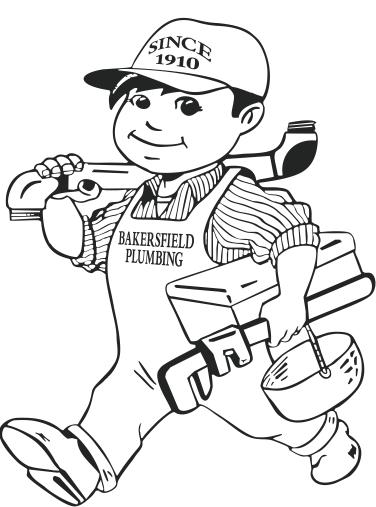At Bakersfield Plumbing Company, we’ve been serving Bakersfield, CA, and Kern County since 1910. Over the years, we’ve encountered many homeowners frustrated with how long it can take for their water to heat up. As experienced plumbers, we understand how vital it is to have a consistent and quick hot water supply. In this blog post, we’ll delve into the reasons why your water might be taking so long to heat up and what you can do about it.
One of the most common reasons for a delay in hot water is the distance between your water heater and the point of use. If your bathroom or kitchen is far from the water heater, it will naturally take longer for the hot water to travel through the pipes. This can be particularly noticeable in larger homes or buildings with complex plumbing systems.
Over time, sediment can accumulate at the bottom of your water heater tank. This build-up can act as an insulating barrier between the heating element and the water, making the heating process less efficient. Regular maintenance, such as flushing the tank, can help prevent sediment accumulation and ensure your water heater operates efficiently.
An old or inefficient water heater may struggle to heat water quickly. If your water heater is more than 10-15 years old, it might be time to consider a replacement. Newer models are more energy-efficient and can provide hot water more quickly.
If your household has grown or your hot water usage has increased, your water heater might not be able to keep up with the demand. An undersized water heater can result in longer wait times for hot water, especially during peak usage times. Upgrading to a larger unit or installing a tankless water heater can help alleviate this issue.
Leaks, blockages, or poor insulation in your plumbing system can also cause delays in hot water delivery. Leaks can reduce the water pressure, while blockages can restrict water flow. Poor insulation can cause heat loss as the hot water travels through the pipes, resulting in cooler water at the tap. A thorough inspection by a professional plumber can identify and address these issues.
A recirculating pump can keep hot water flowing through your pipes continuously, reducing the wait time for hot water. This is particularly useful for larger homes or homes with long distances between the water heater and faucets.
Tankless water heaters provide hot water on demand, eliminating the need to wait for a tank to heat up. They are more energy-efficient and can provide a continuous supply of hot water.
Insulating your hot water pipes can minimize heat loss as the water travels from the heater to the faucet. This can help maintain the water temperature and reduce the time it takes for hot water to reach you.
Regular maintenance of your water heater, including flushing the tank to remove sediment and inspecting the heating elements, can ensure your water heater operates at peak efficiency. Scheduling annual inspections with a professional plumber can help extend the lifespan of your water heater and improve its performance.
If your water takes too long to heat up, it can be a significant inconvenience. By understanding the common causes and implementing the right solutions, you can enjoy quicker access to hot water and improve the efficiency of your home’s plumbing system. At Bakersfield Plumbing Company, our experienced plumbers are here to help with all your water heating needs. Whether you need maintenance, repairs, or an upgrade to a more efficient system, we’ve got you covered. Contact us today to schedule an appointment and keep your hot water flowing smoothly.

Address:
4625 District Boulevard
Phone:
(661) 397-2093